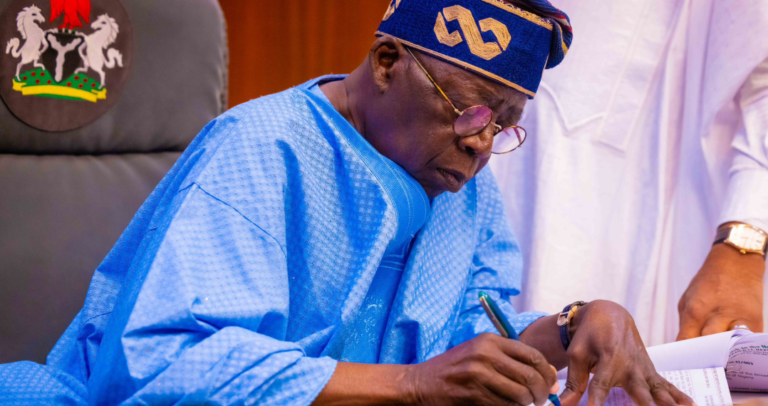Lagos, Nigeria – The 2025 Vanguard Economic Discourse held in Lagos brought together top economists and industry stakeholders who painted a sobering picture of Nigeria’s economic future, forecasting a year marked by turbulence and uncertainty.
With the theme, “Nigeria’s Economic Outlook 2025: Hardship and Pathways to Sustainable Recovery,” the event served as a national wake-up call, urging immediate structural reforms and strategic planning.
Global Instability, Local Vulnerabilities
Delivering the keynote address, Dr. Yemi Kale, former Statistician General of the Federation and current Group Chief Economist at the African Export-Import Bank, emphasized that Nigeria sits at a precarious intersection of global volatility and domestic fragility.
According to him, the global economic environment — shaken by renewed tariff wars, protectionism, and geopolitical shifts — is challenging traditional policy tools, rendering fiscal and monetary responses increasingly ineffective.
“The world is in flux. Mixed signals abound. If I had to describe 2025 in one word, it would be turbulence, followed closely by uncertainty,” Kale declared. “For countries like Nigeria, already grappling with structural weaknesses, this turbulence poses serious threats.”
He warned that in this environment, routine economic strategies will fail. Instead, Nigeria must pivot to a holistic, inclusive development model, grounded in innovation, institutional strength, and decisive political will.
Economic Struggles Impact Everyone
Dr. Kale noted that economic uncertainty is not just a theoretical concern — it has real-life implications. From households and businesses to governments and investors, the inability to plan effectively amid volatility only deepens economic fragility.
“Most Nigerians live hand-to-mouth,” he said. “So even minor economic shocks can be catastrophic.”
Seeking Economic Sovereignty
In his opening remarks, Mr. Dele Oye, President of NACCIMA and Chairman of the Organised Private Sector of Nigeria (OPSN), called for Nigeria to pursue economic sovereignty and rethink its reliance on global trade dynamics dominated by Western powers.
“America’s ‘America First’ policy and rising tariffs are squeezing developing economies like Nigeria. We need a political structure that can withstand these global shocks,” Oye said.
He criticized recent U.S. tariffs—14% on Nigerian exports—as a direct hit on critical markets like crude oil and agricultural products, warning of cascading job losses and economic instability.
Failure to Prioritize National Development
Dr. Tayo Aduloju, CEO of the Nigeria Economic Summit Group (NESG), attributed Nigeria’s economic woes to a deep-rooted failure to pursue national development with integrity and intent.
“Our problem isn’t just economic—it’s a failure of responsible governance,” he said. “Every major decision shaping our economy is a product of collective inaction or misdirection by political, business, and even military elites.”
Aduloju emphasized the need for synergy between the private sector and government, stressing that true progress can only come from co-delivering specific national objectives with clear accountability.
He urged de-risking Nigeria’s $3 trillion infrastructure stock and opening up investment incentives across key sectors like energy, transportation, and logistics.
Market Forces Alone Cannot Save the Economy
Dr. Muda Yusuf, CEO of the Centre for the Promotion of Private Enterprise (CPPE), pushed back against the idea of relying solely on market forces.
“Markets fail, and where they do, the government must intervene — especially in critical sectors like energy, health, and transportation,” he said.
Yusuf criticized Nigeria’s current trade policy for overemphasizing revenue generation instead of using tariffs as instruments to support industrial growth and investments.
“High import tariffs choke businesses before they even get started. We need a shift from revenue-first policies to investment-friendly trade policies,” he emphasized.
Energy Costs Crippling Nigerian Manufacturers
Ms. Demi Samande, CEO of Majeurs Holdings, highlighted the devastating impact of energy costs on Nigerian manufacturers.
“We spend around 40% of our annual revenue on diesel and other power sources,” she said. “Globally, manufacturers spend less than 10%. It’s stifling our ability to compete and grow.”
She described frequent power outages as a serious threat to SMEs, leading to significant profit losses and job cuts.
Borrowing Without Purpose Is Unsustainable
ICAN President, Chief Davidson Alaribe, represented by Dr. Oluseyi Oladimeji Olanrewaju, warned against borrowing for recurrent expenses, which he labeled “financially unsustainable.”
“Debt isn’t bad—but we must channel it into infrastructure and productivity. Right now, too much of it goes into consumption,” he said.
Time for Bold, Inclusive Economic Reforms
Dr. Femi Egbesola, President of the Association of Small Business Owners of Nigeria (ASBON), urged the government to collaborate more meaningfully with the private sector in crafting and implementing policy.
“We’ve been saying the same thing for decades: regulate less, collaborate more,” he said. “Engage us from the beginning—ab initio—not after policies are made.”
Conclusion: Nigeria at a Crossroads
The 2025 Vanguard Economic Discourse served as a sobering reminder that Nigeria’s economic salvation lies in bold reforms, clear planning, and meaningful collaboration across public and private sectors.
The time for action is now, and as the world continues to evolve, Nigeria must choose whether to adapt, or fall behind.

